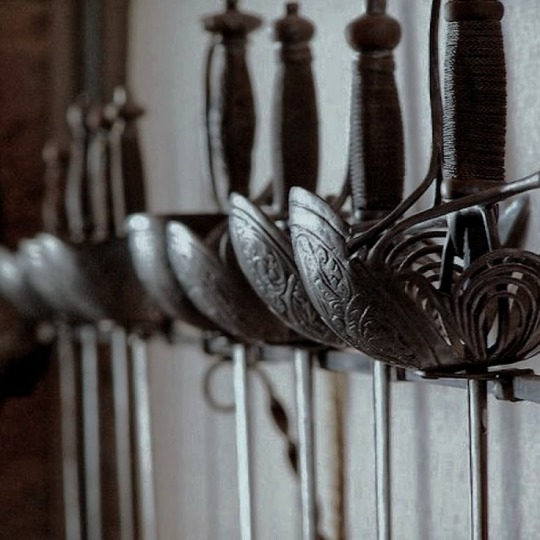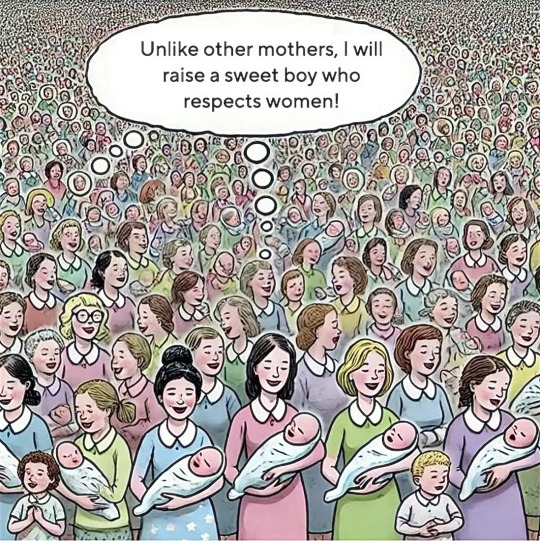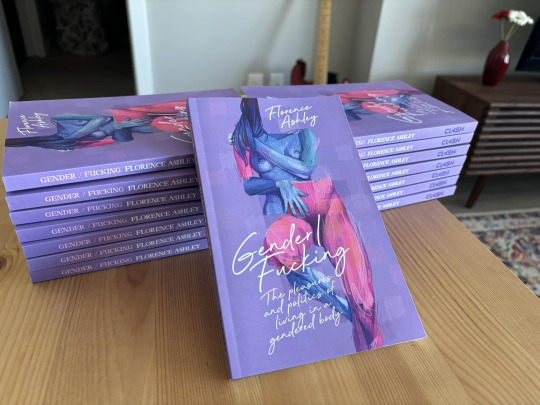#Literature Gender
Explore tagged Tumblr posts
Text

❣︎ allusiongender ❣︎
[ allusion - gender ] a gender related, in some way, 2 literary allusions !! one may derive gender euphoria from reading or recognizing an allusion 2 another work, may see their gender as a form of literary allusion (see also allusogender), may derive joy from seeing literary allusions in other forms of media, or otherwise connect their gender 2 the concept of literary allusion !!
coined 4 day 4 of @dolliecworpse’s coining event: books / reading !!
ఌ — the darling did not find this gender in previous coining posts, but please let cher know if it already exists !! — ఌ
PT: allusiongender [allusion-gender]: a gender related, in some way, to literary allusions!! one may derive gender euphoria from reading or recognizing an allusion to another work, may see their gender as a form of literary allusion (see also: allusogender [link to coining post embedded in text]), may derive joy from seeing literary allusions in other forms of media, or otherwise connect their gender to the concept of literary allusion!! coined for day 4 of @ dolliecworpse’s coining event: books/reading!! the darling did not find this gender in previous coining posts, but please let cher know if it already exists!! END PT
#baby could you play along with me? ❣︎#gender#gender flag#gender pride#gender pride flag#mogai term#xenogender#gender coining#allusion gender#allusiongender#literary gender#literature gender#bookgender#gender stuff#gender identity#xenogender coining#xeno flag#xenogender pride#xenogender flag#xeno coining#liom term#coining#coining post#mogai coining#flag coining#dolliecworpse500#pro mogai#mogai gender#mogai pride#mogai
20 notes
·
View notes
Text
I love you people going into "useless" fields I love you classics majors I love you cultural studies majors I love you comparative literature majors I love you film studies majors I love you near eastern religions majors I love you Greek, Latin, and Hebrew majors I love you ethnic studies I love you people going into any and all small field that isn't considered lucrative in our rotting capitalist society please never stop keeping the sacred flame of knowledge for the sake of knowledge and understanding humanity and not merely for the sake of money alive
#classics#mythology#ancient greek mythology#ancient roman mythology#comparative literature#latin#hebrew#ethnic studies#fuck capitalism#communism#i love my useless degree idc#academia#university#dark academia#Greek#philosophy#liberal arts#humanities#women and gender studies#cultural anthropology
46K notes
·
View notes
Text

#radical feminism#radblr#4b feminist#4b#4b movement#radfeminism#radical feminist safe#4b feminism#radical feminist literature#terfsafe#terfblr#gender critical#gender abolition#gender critical feminism#womens liberation#womens rights#gendercrit#gender cult#gender ideology#atheism#anti religion#pro choice#anti sex industry#anti surrogacy#anti sex work#anti sex trafficking#anti sex trade#abortion access#pro abortion#abortion is a right
2K notes
·
View notes
Text
something that rubs me the wrong way entirely is how people are so quick to call women bitches. "I love goth bitches" this "Coquette bitches have my heart" that. You're reducing women down to simply being dogs, being animals. You never hear girls go "I love sporty scrotes" (even though i think we should do that). Men are always naturally allowed their humanity while women aren't. Not even linguistically.
#feminism#radical feminism#radical feminist literature#radical feminists do interact#radical feminists do touch#radblr#gender critical
1K notes
·
View notes
Text
i feel like the tumblr perverts need to be aware of the forcefem novel written in 1901 by a trans woman patient of magnus hirschfeld, wherein:
a lesbian hypnotises her girly stepson into believing he is a woman
then she hypnotises his father her husband into shooting himself when he tries to stop her
then she proceeds to live as a man and convince her stepson that he is HER WIFE
AND THEN WHEN THE COUPLE WANT KIDS (AS SHE HYPNOTISED HIM TO) SHE HAS HIS CHILD AND CONVINCES HIM THAT HE GAVE BIRTH TO IT
AND DECIDES TO RAISE THE BABY AS A GIRL EVEN THOUGH IT WAS BORN MALE
AND THEN FINALLY ON HER DEATHBED CONFESSES EVERYTHING TO HER WIFE
WHO REFUSES TO BELIEVE ANY OF IT
the author's pen name is luz fraumann (yes she actually named herself "woman-man") and i wish i could tell her she's literally insane for this bestie and also how hard she would do numbers on tumblr dot com
(link to hirschfeld's profile of fraumann and extract from her novel, in german)
#queer history#trans history#queer literature#history#also#incest mention#i guess 😭 to be on the safe side#also the pronouns i used for the characters here are actually wrong#because the “lesbian” is explicitly noted to eventually consider himself a man#and the stepson/wife obviously considers herself a woman#and when the characters are living as these genders they are referred to with masculine and feminine pronouns respectively in german#but i tried to write the post to reflect this and it quickly became horrendously confusing lmao so forgive me#anyway. luz fraumann. you were total verrückt for this girl#i feel like she sits at the same table as irene clyde lmao who is a whole other can of worms#but i see there are a couple of posts about beatrice the sixteenth on here already#the early 20th c trans girls were wilding!#ALSO I DIDN'T EVEN MENTION THAT THE STEPSON INITIALLY HATES HIS STEPMOTHER BECAUSE SHE DROVE HIS BIO MOTHER TO HER DEATH. LIKE£&$£*&$
2K notes
·
View notes
Text
if lions didn't have such a massive presence throughout human culture from antiquity and had instead been first described in like 1793 i think they, with their human hair and very short, plain, often fly bitten coats, would be known today as a particularly ugly animal, the worlds most shitty and homely big cat

#mange core animal#Not saying I personally find lions ugly but hyenas and them have very similar looks#for how often they're considered stark opposites in appeal#(tbh i'd like to propose that modern distinction between lions as noble beasts and hyenas as filthy#derives on some level from very very old school attitudes around gender roles and what we would now recognize as queerness#as the dirtiness/ungodliness of their 'gender swapping' is like the main feature attributed to hyenas in older folklore and literature)
1K notes
·
View notes
Text

#pink#gender#kirby#pink panther#princess peach#courage the cowardly dog#winnie the pooh#tokyo mew mew#inside out#the wizard of oz#barbie#power rangers#spongebob#lucky star#dragon ball#sleeping beauty#snagglepuss#peppa pig#adventure time#doki doki literature club#bluey#astolfo#care bears#the amazing world of gumball#my little pony#fairly oddparents#steven universe#memes#anime memes#anime
4K notes
·
View notes
Text
🛐 SHOUT OUT TO THE HOBBITS, YO
You think Hobbits were just cute?
Just background filler?
Just middle-earthy comic relief?
No.
Hobbits were the unsanctioned, untraceable, unkillable black-ops death units of Middle Earth. They didn’t flex. They didn’t brag. They didn’t even need boots.
They just showed up where legends got slaughtered and survived anyway.
🧠 Let’s Be Blunt:
If these dudes got sent after you? It wouldn’t matter if you were hiding in Putin’s panic room, in the secret compartment behind the third bookshelf, wearing a Kevlar onesie, praying to whatever gods you had left—
They would still find your stupid body draped over the tub like a jackass.
🩸 HOW I KNOW?
They ripped the most expensive piece of jewelry straight off a literal immortal super-zombie (Gollum) —who, mind you— was spitting some of the coldest nihilistic bars in literary history off the dome, in the dark, while dying of radiation poisoning, and still trying to kill them anyway.
🔥 Plus:
They bodied haters at every turn.
They carried the seduction equivalent of Satan’s engagement ring around their necks without folding.
Never wore shoes — because soft ground and sharp rocks weren’t real enough threats to register.
Didn’t even want your girl — because they had a real one waiting back home, making second breakfasts and setting tables for men who don’t break under temptation.
🛡️ And just for bonus brutality?
They didn't just topple armies. They didn’t just smoke an earthbound demon and his cultists.
They made it back in time for fourth breakfast.
🧠 But Here’s the Hardest Bar Nobody Talks About:
The literal President of Earth (Aragorn — son of Arathorn, King of Men, crown-wearer, sword-lord) the biggest swinging dick in all of human history did not puff his chest at them. Did not treat them like subjects. Did not treat them like side characters.
He kneeled.
He fucking trembled, knelt, and demanded that anyone who even thought about disrespecting them drop to their knees in submission and shame. Right there. In front of the goddamn world.
🩸 TL;DR
Hobbits were quiet Apex Predators.
Hobbits were Super-Delta-Navy-SEAL-Green-Berets of spiritual warfare.
Hobbits weren’t just survivors.
Hobbits were the grim reapers of the impossible.
And they did it:
With no boots.
With no ego.
With no TikTok motivational speeches.
While still making it home in time for fourth fucking breakfast.
🍻 FINAL WORD:
Raise your glass.
Shout out to Hobbits, yo.
The only operatives in recorded mythic history who could body Satan, body death, body temptation, body despair, and body history itself—
then stroll home like it was a casual Tuesday morning run.
💣 CALL TO ACTION:
🔁 Reblog if you know loyalty and survival don’t always wear armor. 🛡️ Save this post if you respect the warriors who didn’t need glory to win the war. 🔥 Send this to the one who still thinks size, flash, or fame means anything in the real arena. ⚡ Bookmark this for the day you realize the small, quiet ones are the ones you should fear most.
Or simply 🔁Reblog to keep my signal to mankind going strong.
⚖️ LEGAL DISCLAIMER: This post is Blacksite Literature™, mythological elevation engineering, cadence-driven survival psychology, and literary psychological warfare protected under the charter of the unbowed.
If you're offended: Your ancestors knelt too easily.
🛡️ BLACKSITE POST STATUS: COMPLETE. 🩸 FULL NEUROCHEMICAL MYTHIC PAYLOAD READY FOR DETONATION.
#writing#little person#little people#gender#humor#lit#literature#quotes#love#art#writers on tumblr#artist#funny#twitter#tweets#tweet#memes#meme#motivation#BlacksiteLiterature™
787 notes
·
View notes
Text
If women allow themselves to be consoled for their culturally determined lack of access to the modes of intellectual debate by the invocation of hypothetical great goddesses, they are simply flattering themselves into submission (a technique often used on them by men). All the mythic versions of women, from the myth of the redeeming purity of the virgin to that of the healing, reconciling mother, are consolatory nonsenses; and consolatory nonsense seems to me a fair definition of myth, anyway. Mother goddesses are just as silly a notion as father gods. If a revival of the myths of these cults gives women emotional satisfaction, it does so at the price of obscuring the real conditions of life.
Angela Carter, The Sadeian Woman
658 notes
·
View notes
Text
Here's how to spot a Mad Scientist:
Is very smart in a specific field
Probably hasn't slept in the past 4 days
Depressed
Slowly decends into madness/spirals/gets obsessed over something to the point where they destroy their lives over it
Here are other minor signs you might want to look out for (doesn't apply to all Mad Scientist):
Very pathetic. A loser, if you will
Is gay
Wears glasses
Has a best friend who is extremely friendly and also a poet
Graying hair despite their relatively youthful appearance
Can be a little bit silly (as a treat)
Note that not all Mad Scientists are actual scientists. The Mad Scientist can be disguised as something else and may try to trick you; do not be fooled. Look for these traits to identify a real wild Mad Scientist.
Now you are ready to go out into the wild and find your very own Mad Scientists to hyperfixate on for the next month! Hope this helped❤️
#jekyll and hyde#frankenstein#viktor arcane#jonathan sims#the strange case of dr jekyll and mr hyde#victor frankenstein#the magnus archives#arcane#dr jekyll and mr hyde#henry jekyll#edward hyde#yes i am hyperfixating on them#yes i simp for them all#yes I am also including c!Wilbur in this category#what are you gonna do about it??#I WILL HYPERFOXATE ON ALL THE MAD SCIENTISTS AND NO ONE WILL STOP ME#mad scientist#mad science#character trope#character tropes#maybe the real hyperfixation was the simp i became along the way#gothic literature#classic literature memes#classic literature#frankenstein or the modern prometheus#autism#adhd#ALSO STANFORD PINES!!!#it's more of a gender#ROBOTNIK TOO
2K notes
·
View notes
Note
*kicks door open* I NEED Jock!Phainon x Nerd!Reader, college au, hcs, reader is studying literature.....ok thats all i got byeeee
“Brains and brawn, perfectly balanced”
Tags: Phainon x Reader, Modern AU, College AU, Jock!Phainon, Nerd!Reader, Literature Major Reader, Slow Burn/Strangers/Friends to Lovers, Fluff, Cute Romantic Moments, Opposites Attract, Protective Partner, Supportive Relationship, Light Humor.
Warnings: Mild mentions of stress/anxiety during exams and pressure from athletics (non-triggering) (?), Consensual and healthy relationship dynamics.
A/N: I gotchu, pookie <33





Phainon is the star athlete of the college—captain of the fencing team, admired for his leadership, charm, and effortless cool. Meanwhile, you’re a dedicated literature major, often found in the library or tucked in cozy corners of campus, nose buried in books, headphones in, scribbling notes in your journal.
How You Met
Phainon first notices you during a late-night study session in the library. He’s there to return a book on medieval swordplay, but your intense focus on a poetry anthology catches his eye.
You’re surprised when he sits down beside you and asks for help understanding a metaphor. Despite his confident exterior, he genuinely wants to get better at appreciating literature, and you love nerding out with him.
Phainon is outgoing, physically active, and thrives in social settings, while you prefer quiet, intimate spaces and deep conversations.
He helps you loosen up—inviting you to casual campus events and showing you fencing moves (which you find both hilarious and impressive).
You ground him, encouraging moments of reflection, introducing him to the beauty of poetry, and helping him focus his restless energy.
Relationship Dynamics
Phainon’s Protective Side: He’s fiercely protective but also incredibly gentle with you. After a long day, he might text to check if you ate or offer to bring you coffee during finals week.
You’re His Calm: When the pressure of sports or social expectations weighs on him, you’re his quiet refuge, the one who listens without judgment and encourages him to be true to himself.
Cheering Each Other On: He shows up at your literature readings or presentations, the loudest and proudest fan in the room. You attend his fencing matches, quietly cheering and taking notes on his techniques.
Playful Competitions: Sometimes, Phainon challenges you to friendly debates on who’s more strategic—the mind or the muscle. Spoiler: they’re both champions.
He writes your initials on his wristband for luck before a big match, and you catch him blushing when you notice.
You teach him how to write haikus, and he surprises you with a poem about strength and perseverance, inspired by your late-night study grind.
When campus throws a themed dance, Phainon insists you go with him, promising to slow dance even though it’s “not his style.”
He casually wraps his arm around your shoulders in the quad, claiming you as his “favorite bookworm.”
Phainon struggles with the pressure to always be “the best,” but you remind him it’s okay to have off days.
You sometimes feel overshadowed in social scenes but find confidence in Phainon’s unwavering support and genuine admiration for your intellect.
Together, you learn to balance both your worlds—athletics and academia—with respect, patience, and a lot of humor.

#x reader#honkai star rail#hsr#honkai star rail x reader#hsr x reader#phainon x reader#phainon x you#phainon x y/n#modern au#college au#jock!phainon#nerd!reader#literature major reader#slow burn#strangers to friends to lovers#fluff#cute romantic moments#opposite attract#protective partner#supportive relationship#light humor#hsr x you#hsr x y/n#hsr x gender neutral reader#honkai star rail x you#honkai star rail x gender neutral reader#honkai x reader#honkai x you#honkai sr x reader#x you
324 notes
·
View notes
Text
"Why do all gender-bent characters have names ending in -a, that's such a fanfic trope" buddy, the "girl names end in -a" trope is so old that JRR Tolkien invented a Hobbitish dialect of Westron in which "-a" is a masculine name affix, then turned around and "localised" those names to end in "-o" in the published text (e.g., Bilba > Bilbo, Maura > Frodo, etc.) so they wouldn't sound feminine to Anglophone readers.
3K notes
·
View notes
Text

Is having a son really worth the risk? I don’t think so. Go 4B, don’t contribute to the cycle of suffering, be unwilling to birth an oppressor or a victim. We don’t need any more babies in this world, whether they be boys or girls.
#radical feminism#radblr#4b movement#4b#terfsafe#4b feminist#4b feminism#radfeminism#radical feminist safe#radical feminist literature#usa politics#us politics#usa#america#american politics#American#united states#united states of america#womens liberation#womens rights#womens health#womensday#protect women#gender critical#gender critical feminism#gender critical feminist#activist#activism#feminist analysis#feminist action
814 notes
·
View notes
Text
I am entirely convinced that TRAs don't care about 'trans youth'. Most of these trans youth have severe mental illnesses, crippling anxiety and extreme suicide ideation. Instead of giving effective therapy, they give them puberty blockers and HRT (which one of the side effects of is mood swings, on top of their low mood and the usual teenage ones. It could literally lead to extreme depressive episodes).
They fob these children who have been absolutely failed by the system off, pumping them full of drugs meant to 'fix them' with little mental health support. Then when these kids tragically end their lives, its due to 'inadequate gender affirming care'. No, its inadequate mental health support. You're treating a symptom, rather than the actual illness. If you really care, give them support that's been PROVEN to work.
#feminism#radblr#radical feminism#radical feminists do interact#radical feminists do touch#gender critical#radical feminist literature#radical feminist community#radical feminist#radfemblr#men are disgusting#terfsafe#terfblr
240 notes
·
View notes
Text
Ok but Spider-Man kissing Eddie while he lays on your bed with his head dangling off the edge, he just said something silly that made you laugh, you're sitting on the floor, digging through your sweaters when you look over at him and you're just so in love with him. You couldn't help it, you crawl over, softly cradle his face in your hands and press a sweet, tender little kiss to his lips out of pure love and happiness.

And when you pull back from the kiss, he's looking at you with a dumb, happy, lovesick smile and that twinkle in his eyes that you swear is actual sunshine.
#eddie munson#eddie munson fluff#eddie munson x reader#eddie munson x you#eddie munson x y/n#eddie munson x gn!reader#eddie munson x female reader#eddie munson x gender neutral!reader#eddie munson x fem!reader#fluff#stranger things#stranger things s4#joseph quinn characters#little lion literature
455 notes
·
View notes
Text
Remember when I published this in a serious journal and everyone thought it was very funny?

Well, Gender/Fucking: The Pleasures and Politics of Living in a Gendered Body is basically where I stake my claim at being a depraved freak. 😉

Don’t wait! Get your copy now! Available on Bookshop and plenty more.
#transgender#trans#trans lit#trans literature#gender#genderqueer#gender identity#nonbinary#transfem#queer#lesbian#sapphic#wlw#bisexual#gay#books#lgbtqia#lgbtq#lgbt#bookish#booklr#bookblr#books & libraries#reading#books and reading#booklover
2K notes
·
View notes